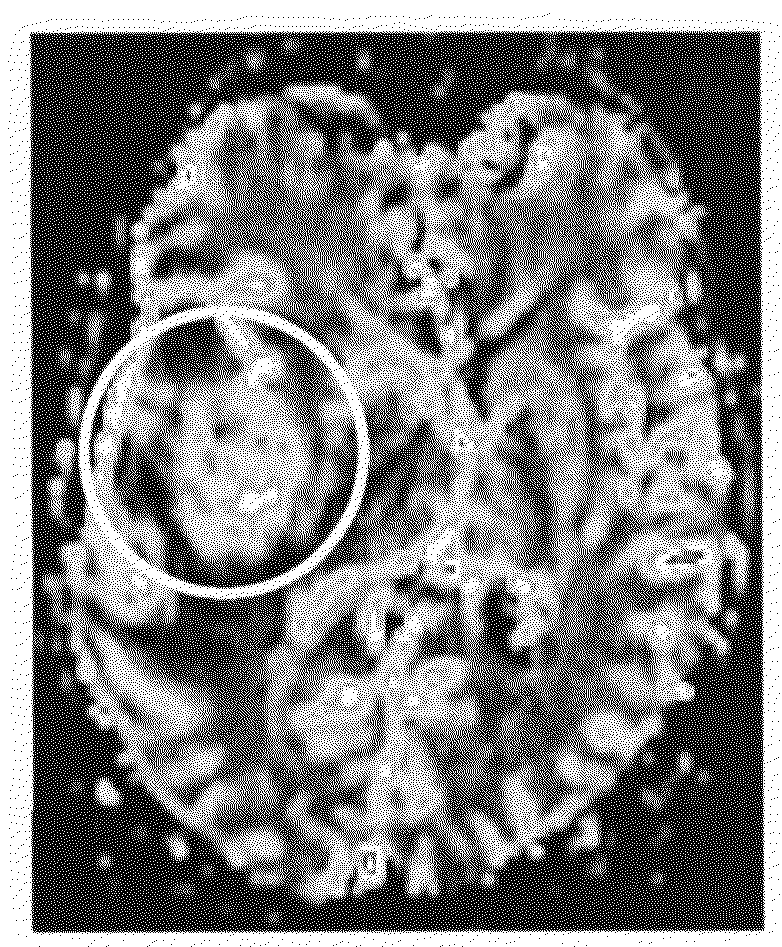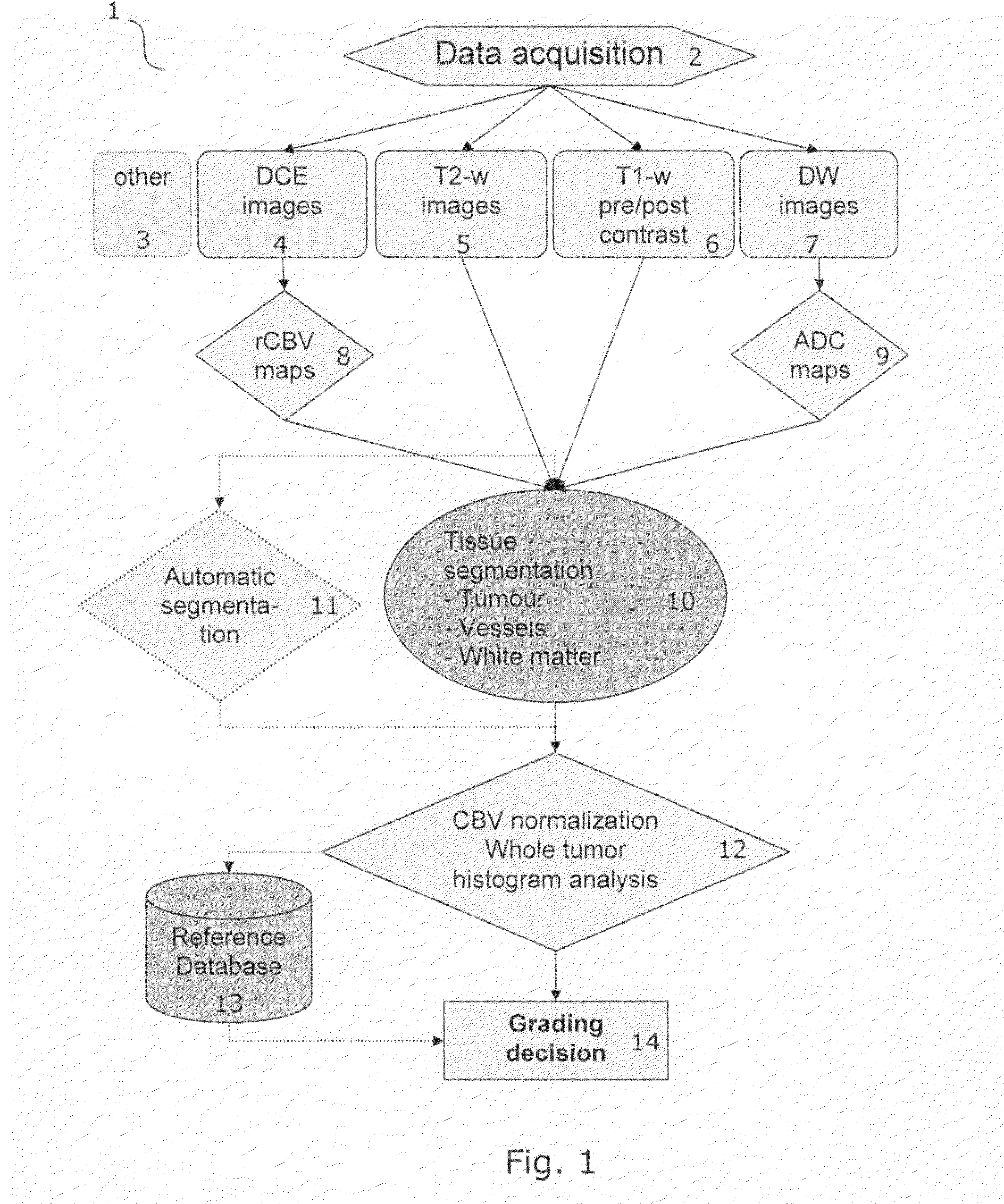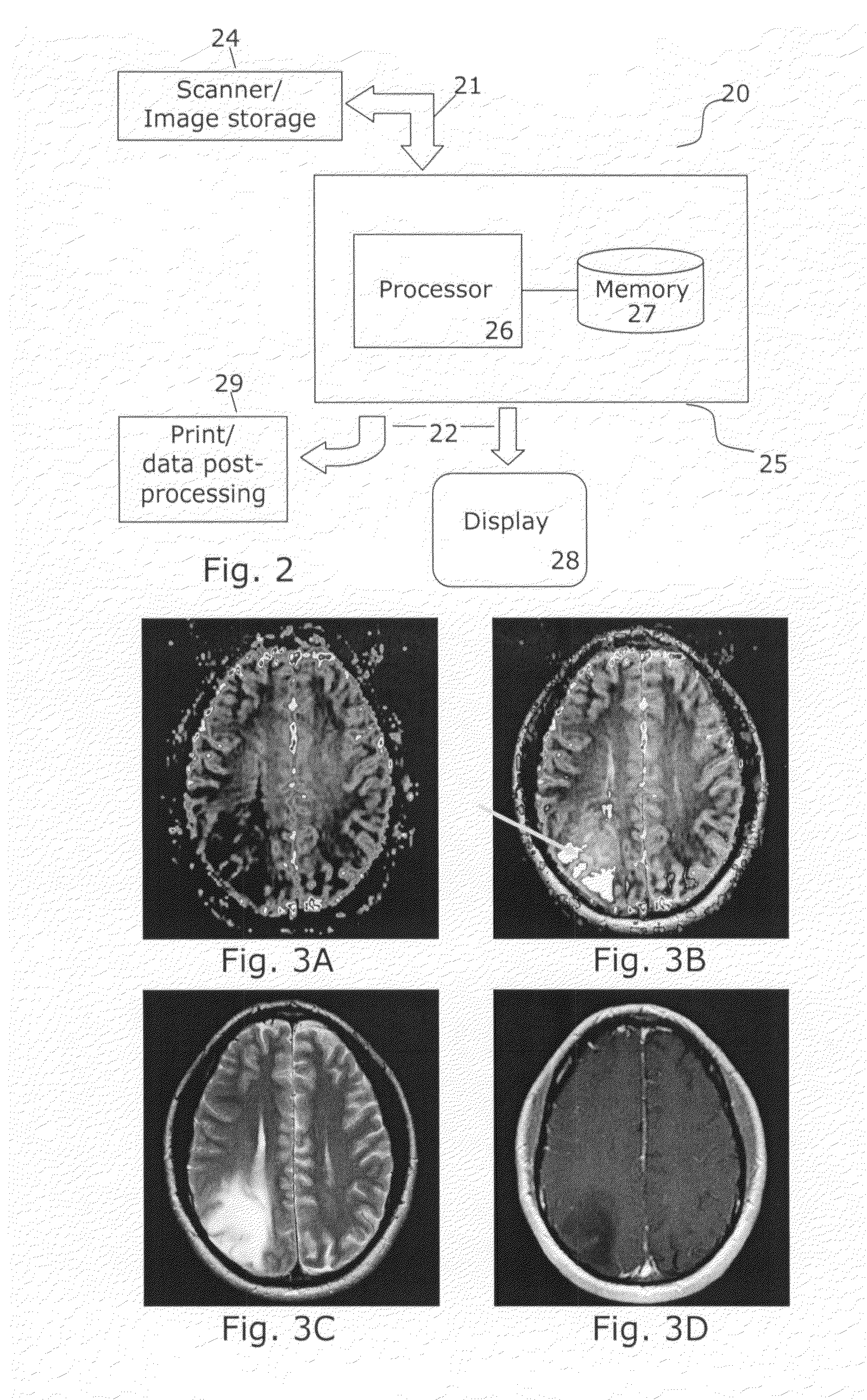Tumor grading from blood volume maps
- Summary
- Abstract
- Description
- Claims
- Application Information
AI Technical Summary
Benefits of technology
Problems solved by technology
Method used
Image
Examples
Embodiment Construction
[0063]FIG. 1 is a flow diagram 1 used in the following to embody various embodiments of the invention. The flow diagram 1 outlines and embodies the process steps comprised in the method for grading a tumor according to an embodiment of the invention. The flow diagram 1 outlines and embodies the system architecture, such as software architecture, of the system for providing parameters to be used in grading tumors according to an embodiment of the invention. Also, the flow diagram 1 outlines and embodies the process steps comprised in the method for preparing a correlation data set for use in grading a tumor according to an embodiment of the invention. Although described in relation to the example of CBV maps of brain tumors obtained by perfusion MRI, the corresponding process or architecture can be applied to techniques applied by other embodiments of the invention.
[0064]First, the data used to form maps representing blood volume or cellular metabolism and to perform tissue segmentat...
PUM
 Login to View More
Login to View More Abstract
Description
Claims
Application Information
 Login to View More
Login to View More - R&D
- Intellectual Property
- Life Sciences
- Materials
- Tech Scout
- Unparalleled Data Quality
- Higher Quality Content
- 60% Fewer Hallucinations
Browse by: Latest US Patents, China's latest patents, Technical Efficacy Thesaurus, Application Domain, Technology Topic, Popular Technical Reports.
© 2025 PatSnap. All rights reserved.Legal|Privacy policy|Modern Slavery Act Transparency Statement|Sitemap|About US| Contact US: help@patsnap.com



